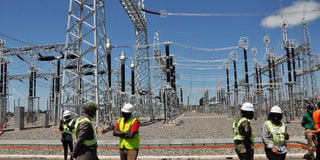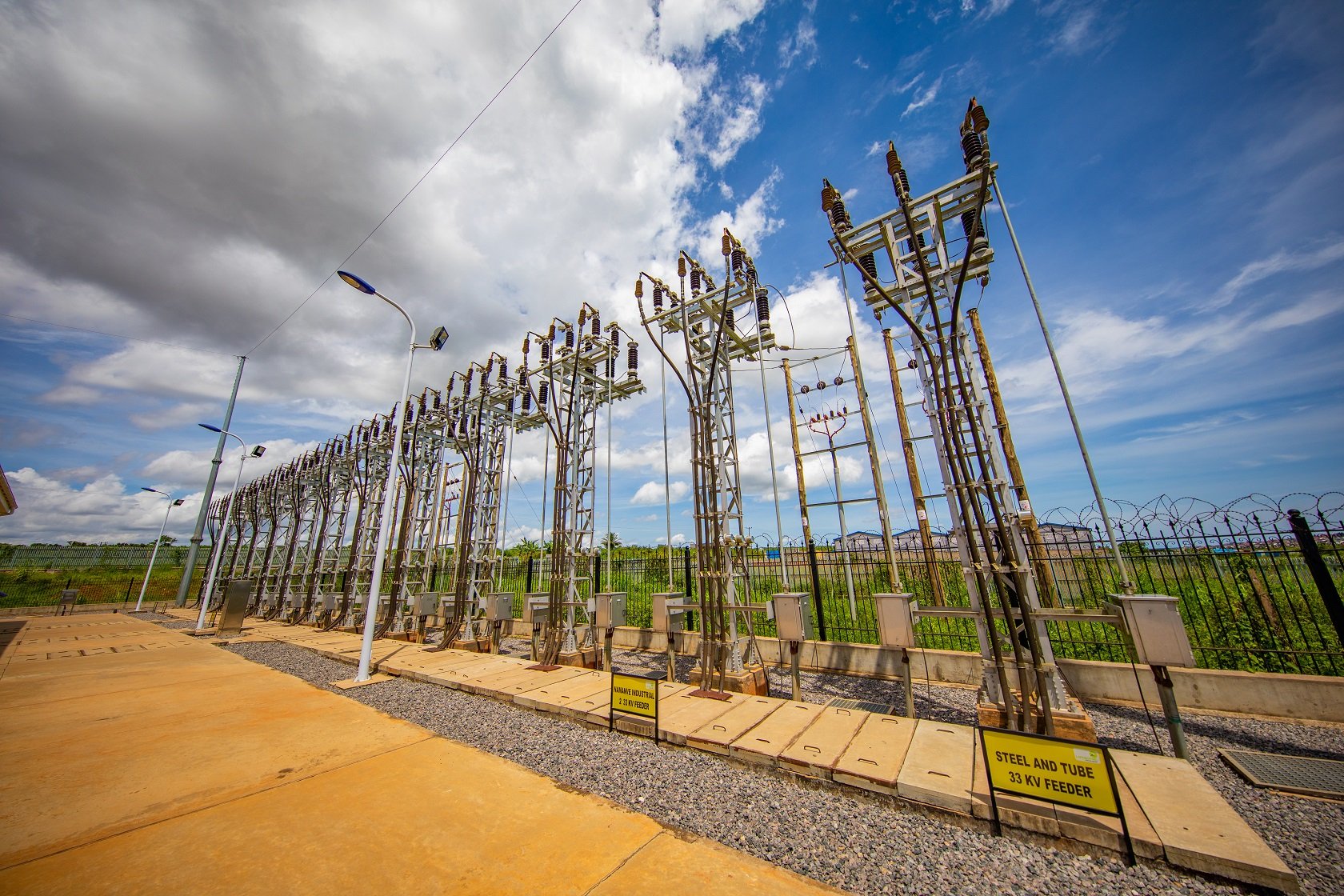Prime
Who will take power to the powerless?

Power lines in Kampala. The high cost of electricity coupled with constraints in transmission and distribution systems remain the main barriers to maximising electricity access in Uganda. PHOTO/Racheal Mabala
What you need to know:
A new report cites energy as one of the three sectors that can change the economy’s fortunes. Ismail Musa Ladu and Martin Luther Oketch examine this as government shops around for an alternative power distributor, a move that affects investor confidence.
Reliable and affordable electricity is a mandatory requirement for the country’s productivity and competitiveness, according to various economic sector players.
The World Bank Group in its analysis, titled: The Uganda Country Private Sector Diagnostic (CPSD) report, notes that affordable and reliable electricity serves as an important input to all other sectors of the economy, directly and indirectly affecting growth, jobs, productivity and competitiveness.
The energy sector contributes to the treasury resources from fuel taxes, Value Added Tax (VAT) on electricity, levy on transmission bulk purchases of electricity, licence fees, royalties and foreign exchange earnings from power exports.
Over the years, Uganda has advanced her energy sector. However, access to electricity coupled with high costs, constrain productivity.
As a result, the leadership of Uganda Manufacturers’ Association (UMA), part of the country’s industrial sector with over 700 corporate, large, medium and small firms, has expressed their displeasure over access and cost issues, the consequences of inaccessible and costly power on productivity and competitiveness.
All this is happening at time when the country generates surplus electricity. But due to the high cost of power coupled with constraints in transmission and distribution systems as well as their interconnection, remain the main barriers to maximising electricity access and achieving what the report refers to as “sector efficiency.”
In addition to agribusiness, which is important for productivity, employment, and export growth, and housing sub-sector, considering its role in fueling growth in the labour-intensive construction sector, the CPSD report also examined energy as one of the three sectors that can change the economy’s fortunes, given its function as an “enabler of overall productivity.”
According to the 2021/2022 buget speech, national electricity access stands at 51 per cent of which, 24 per cent is on-grid and 27 per cent off-grid. With the implementation of the free Electricity Connections Policy (ECP), 152,500 households have been connected to the grid.
Further, power generation capacity has increased by 38 per cent from 925 megawatts in 2016 to 1,274 megawatts in 2020. With the completion of the Karuma hydropower plant which is 98 per cent complete, and several mini hydropower plants such as Aswa, Nyagak and Muzizi, this capacity will increase.
Keen sector interest
Despite the high cost of doing business, the country’s exports to its neighbours has been increasing exponentially. By 2017, Uganda managed to report the first trade surplus with Kenya.
The discovery of Sub-Saharan Africa’s fourth-largest oil reserves in the Albertine Rift basin in 2006 has resulted into an additional boost to investor interest.
Since 2015, Uganda’s growth model started showing signs of weakness, with growth rates decelerating before the outbreak of the Covid-19 pandemic. Growth has relied too much on factor accumulation (mostly labour) and too little on productivity growth and human capital.
The Covid-19 pandemic has exacerbated the country’s development challenges, with Uganda Bureau of Statistics (UBOS) estimates indicating that about 2.6 million Ugandans falling back into poverty in the short term because of the crisis.
Ministry of Finance information shows that the economy contracted by 2.1 percent in 2020 and its fiscal (revenue) deficit surged to 7.6 percent, significantly reducing the room for growth-enhancing expenditures in the years ahead.
At least 600,000 Ugandans enter the labour market every year, making for a workforce that is increasingly younger and urban based.
To address these challenges, the World Bank report notes it will require a focus on growth in sectors such as energy which is an enabler of overall productivity.
Energy will be enabler only if…
Over the past 20 years, Uganda has undertaken significant power sector reforms, leading to considerable results along the energy value chain.
But, “A competitive and dynamic private sector is essential for Uganda to create sufficient jobs for a young and rapidly growing labour force. We will leverage the World Bank Group’s comparative advantage to bolster the country’s private sector and implement meaningful reforms,” said Ms Mukami Kariuki, World Bank country manager for Uganda.
Between 2002 and 2020, installed generation capacity quadrupled; the energy mix improved considerably, reducing costly thermal power from 24 per cent to two percent and replacing it with renewable sources such as hydro, biomass, and solar.
In addition, the size of the transmission network more than doubled. Losses in the transmission and distribution system were also reduced.
According to CPSD, following its investigation, Uganda must take on the next generation of reforms such that the excess supply that was generated also gets evacuated, leads to better electricity access for consumers, and stimulates productive use and regional export opportunities.
This according to World Bank should be done with urgency.
“Unless Uganda invests now to further its transmission and distribution network, the mismatch between supply and demand could increase total electricity costs by over $950 million (Shs3.3 trillion) per year,” reads part of the report.
It continued: “To ensure successful delivery on the publicly stated government goals of increasing access to electricity and reducing its costs, Uganda needs to build on the positive outcomes achieved in the previous reform process—including increased participation by the private sector in the economy—rather than reverse those reforms.”
Investment climate
Irrespective of the concerns pertaining to the power concession deal being raised by among others President Museveni who attributes the high electricity tariffs to “middlemen” in the generation and distribution subsectors, some quarters, including the authors of CPSD report, think the manner in which this matter is being handled breeds mistrust among potential sector investors.
By late last year (October 28, 2021), some institutional investors were exiting the Umeme counter due to uncertainty surrounding concession renewal, which is due to expire in 2025, according to Capital Markets Authority (CMA).
The uncertainty surrounding the renewal of Umeme’s concession, according to CMA impacted performance of the company at the Uganda Securities Exchange. In details contained in the Quarterly Bulletin, CMA said the delay to renew Umeme’s concession, has created anxiety among institutional investors, resulting into an increase in Uganda Securities Exchange’s equity turnover.
Government’s position
While presiding over the handover of Jacobsen assets to government, Energy Minister Ruth Nankabirwa, told Uganda Electricity Generation Company Limited to prepare to take over operations of Kira and Nalubaale power dams.
The dams are operated by South African energy company - Eskom - on behalf of Uganda Electricity Generation Company Limited (UEGCL) under a 20-year concession, which expires in June next year.
In 2002, government entered into a concession with Eskom to operate and maintain Nalubaale and Kira dams. But to date, there is no indication, going by President Museveni and Minister Nankabirwa’s public utterances that a new deal has been agreed upon with any foreign investor.
“Signals to the contrary from the recent remerging of previously unbundled sector institutions as well as questions surrounding the concession negotiation for Umeme (Uganda’s main electricity distribution company) may send undesirable messages to private investors,” reads part of the CPSD report.
The CPSD investigates the different policy reforms that Uganda should consider to encourage private sector participation in the market, especially in the transmission and generation (on- and off-grid) segments of the sector.
Uganda should conduct a thorough cost/benefits analysis of the proposed UEGCL, UEDCL, UETCL merger as well as other institutional changes to ensure development benefits are not reversed.
There is need for more engagement with private and public partners to make sure that institutional changes are carried out transparently.
Uncertainty
Concession renewal
The uncertainty surrounding the renewal of Umeme’s concession, according to CMA impacted performance of the company at the Uganda Securities Exchange. In details contained in the Quarterly Bulletin, CMA said the delay to renew Umeme’s concession, has created anxiety among institutional investors, resulting into an increase in Uganda Securities Exchange’s equity turnover.





